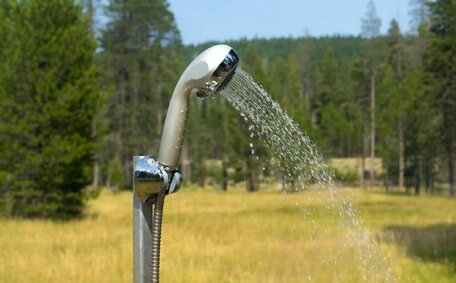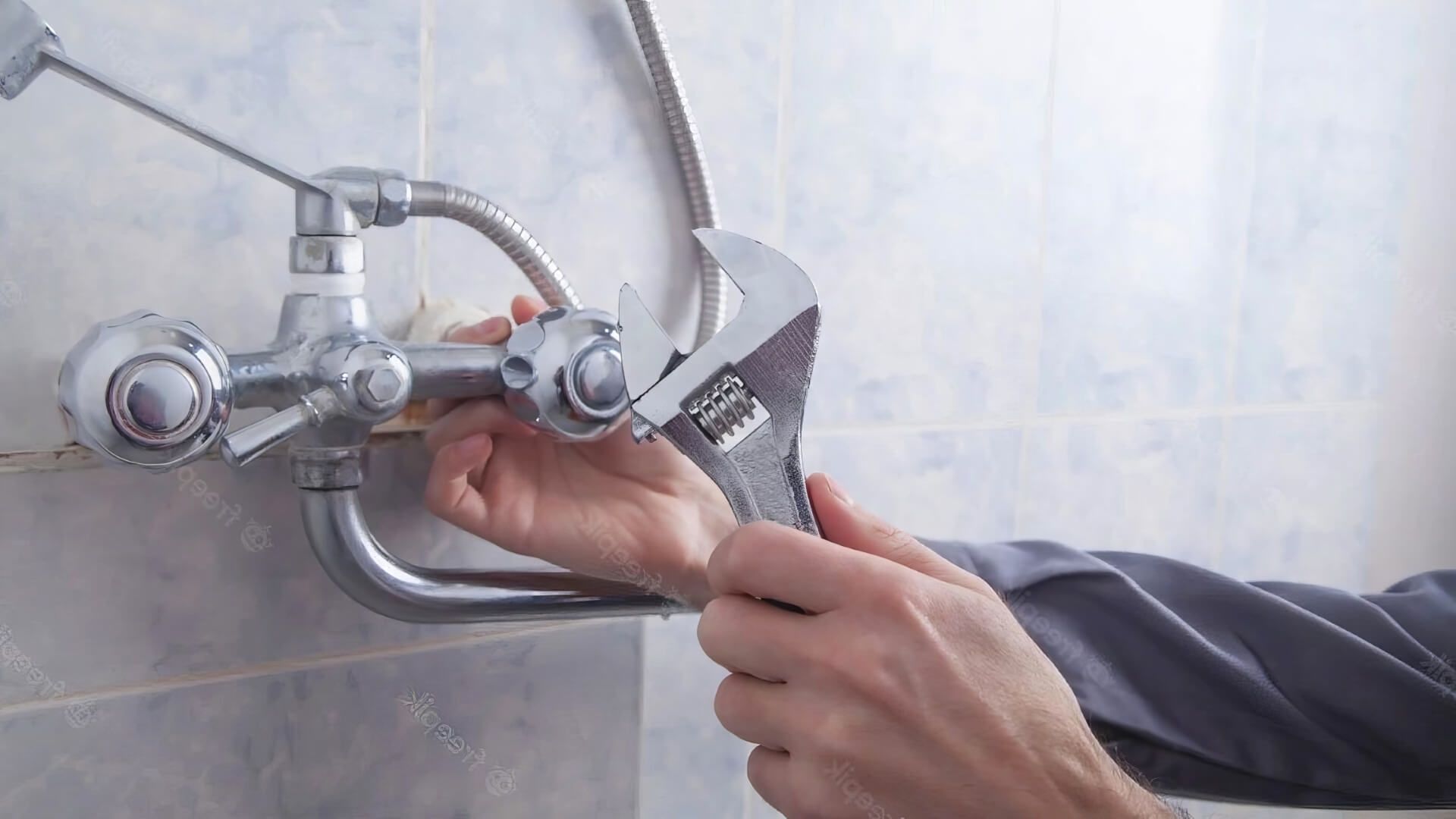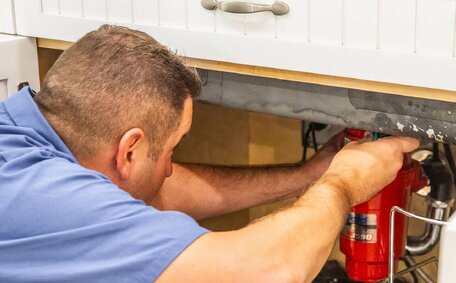Examine the Drain and Remove Visible Clogs
When troubleshooting a blocked shower drain, it’s important to start by visually inspecting the area down your shower. Start by using a screwdriver to remove debris from the drain cover or strainer, addressing the initial blockage. Examine the drain and use a wire hook or needle-nose pliers to extract hair clumps, soap scum, and other debris.
Often, this simple step is enough to remedy your blocked shower without the need for chemical cleaners or mechanical snaking. Hair soap buildup, most common culprits, tend to gather near the drain opening over time. Removing this buildup can allow water to flow freely again.
Carefully remove the drain cover and extract debris to clear the drain without causing damage.
If water remains standing after removing visible debris, explore further steps like manual removal, or consider contacting a plumber, as the blockage may be deeper within the pipe. You may need to use a drain snake or a dissolving agent to effectively unclog the shower drain.
Use a Plunger to Dislodge the Blockage
If examining and clearing visible debris from the drain opening did not resolve the clog, the next logical step is to address a potentially drain clog by using a standard sink or toilet plunger over the drain to forcibly dislodge the blockage.
Begin by sealing the plunger over the drain to create a strong vacuum, which may effectively dislodge the clog. Add a small amount of standing water, or for better results, pour hot water into the drain before plunging. Then vigorously plunge up and down 10-15 times - this pulsating endeavour can steer water to go down and dislodge minor obstructions that might be stuck just below the entrance.
Ensure you use a plunger with a tight fit over the drain opening for the best results. Wear gloves to protect your hands from dirty water and ensure safe disposal down your pipes; wear goggles to maintain clear vision.
Use a high-quality plunger and repeat the process, especially after introducing hot water, to manage a shower drain blockage just below the surface. Persist with the plunging process a few times and you can clear shower drain clogs without resorting to chemicals or snaking.
Exercise caution to avoid damaging any internal parts of the drain. Persistent clogging despite plunging may indicate a more significant obstruction that standard methods cannot address.
Try Boiling Water and Natural Cleaners
Before you consider what to do when faced with a tough clog, opt for some natural cleaning methods to help unblock your pipes without resorting to harsh chemicals.
Pouring boiling water, particularly when dealing with hard water, can help clear grease blockages and proactively maintain your drain. Boil a pot of water and carefully pour it down the drain to flush out grease, as suggested for stubborn clogs. The boiling water dissolves grease, allowing it to drain away and clear the clog.
For soap scum or a hair clog, adding vinegar to the baking soda mix can help break up the obstructions, which often does wonders. Mix one cup of baking soda with an equal amount of white vinegar and pour the solution down the drain.
Allow the fizzing chemical reaction between the baking soda and vinegar to work, as it helps dislodge debris from the drain. Allow it to infiltrate the water drain for 10-15 minutes before introducing a further rinse with more hot water.
Take precautions against spillage when using boiling water or cleaners. Allow time for the reaction to can help break down the blockage before you decide it’s time to call plumber or attempt to use the shower again. Natural agents may be slower but safer than commercial drain opener chemicals which can corrode pipes.
Use a Wire Hook or Drain Snake for Deeper Clogs
If methods like plunging or natural cleaning solutions do not resolve the clog, it likely points to a more serious blockage deeper down the drain pipe. In such cases, create a wire hook from an old coat hanger to manually remove debris.
straighten out the hanger, then bend one end to form a small hook for insertion into the drain. Carefully maneuver the wire hook to pull out blockages, introducing it down the drain opening and twisting and plunging to ensnare any accumulations beneath the pipe’s inner lining.
for blockages deeper than 8 cm, transform a wire hanger into a makeshift drain auger. Feed the rotating auger down towards the blockage. The snaking action helps grab hold of embedded obstructions so they can be removed.
If you’re unsure or if homemade tools like coat hanger hooks and drain augers fail, it’s time to contact a plumber for expert assistance. Wear rubber gloves for protection during this process.
Consider Chemical Drain Cleaners Cautiously
Chemical drain cleaners, available at hardware stores, pledge to rapidly dissolve drain blockage in your pipes and re-establish water flow. However, these potent substances can damage your pipework significantly, so unblock your shower with care and reach out to our professionals immediately if misuse is suspected.
Before using chemical cleaners, read all warnings and follow directions carefully to safely unblock the shower drain. Ensure your bathroom has ventilation to prevent inhaling toxic fumes.
Ingredients such as lye or sulfuric acid in chemical cleaners can corrode pipes and fittings over time. It’s advisable to try safer methods first, like boiling water, plungers, or mechanical snakes, before resorting to chemical cleaners. View chemical drain cleaners as a last resort if other approaches fail to clear the clog.
Any drain cleaner poured down will eventually enter the main sewer lines. Their accumulating residual effects could necessitate costly plumbing repairs, So it’s wise to learn how to reach out to us for a professional assessment. Call us instead of using harsh chemicals, ensuring you follow the right steps if you have any concerns about severely eroding pipes or harming the municipal water system.
Enzyme or bacteria-based drain cleaners, which are less corrosive, can break down organic matter, but if you’re uncertain, consult us for advice on blockages. While safer, achieving results with these methods to unclog your shower may take time compared to powerful caustic compounds.
Call a Professional Plumber for Severe or Persistent Blockages
If all attempts fail, contact a professional, as the shower drain blockage may be severe or due to a damaged pipe. Further DIY attempts could exacerbate the problem, so professional help is recommended.
In these instances, get in touch with a professional plumbing company like Penrith Plumbing. Our licensed plumbers are equipped with high-powered tools to fix clogged shower drain with a high success rate.
We can also determine if the drain line is broken or misaligned. Repiping or spot repairs of damaged drains may be necessary. Our team has mastered how fix the most brutal clogs, leveraging knowledge and experience for effective solutions.
Get in touch with us; We service all suburbs in and around the Sunshine Coast, extending from Penrith.
Our adept team is at the ready to assist with strategies to deal with blocked conduits and provide cost-effective drain cleansing and refurbishment services, restoring your shower’s drainage to proper working order.
Install Preventative Measures Like Drain Filters
To prevent future shower clogs, consider installing a drain filter.
There are several types of drain filters to choose from. Choose models with removable screens for easy removal of accumulated gunk.
Strainer baskets, which catch hair and debris while allowing water flow, aid in keeping shower drains clean. In-line filters get installed farther down the pipe, showing how clean the cylindrical screen that grabs debris but still lets water pass.
Choose a drain filter that fits the size of your existing drain opening. Also consider hair length and volume to determine the right level of filtration needed. In-line filters can be more effective for individuals with long or thick hair.
To install a drain filter, first thoroughly clean the drain pipe to remove hair shower and any current obstructions with a snake. Install the filter device in the drain opening, either by placing it inside or screwing it in, as appropriate. Replace the cover on top and test by running a decent amount of water.
Regularly detach the filter and remove trapped debris to maintain it. But filters greatly reduce future clogging issues.
Practice Proper Drain Maintenance and Cleaning
Clean the drain monthly to maintain its efficiency.
Once a month, use a vinegar and baking soda treatment to dissolve grease and keep pipes clear.
Select a drain stopper with fine holes that allow water through while catching debris.
Utilize a wire hook or similar tool to remove visible gunk and hair from the drain.
Flush the drain weekly with hot water for a couple of minutes to prevent buildup. Always replace the drain cover
Regular maintenance, including deep cleaning, weekly hot water flushes, and using drain baskets or stoppers, will help prevent clogs in your shower.






